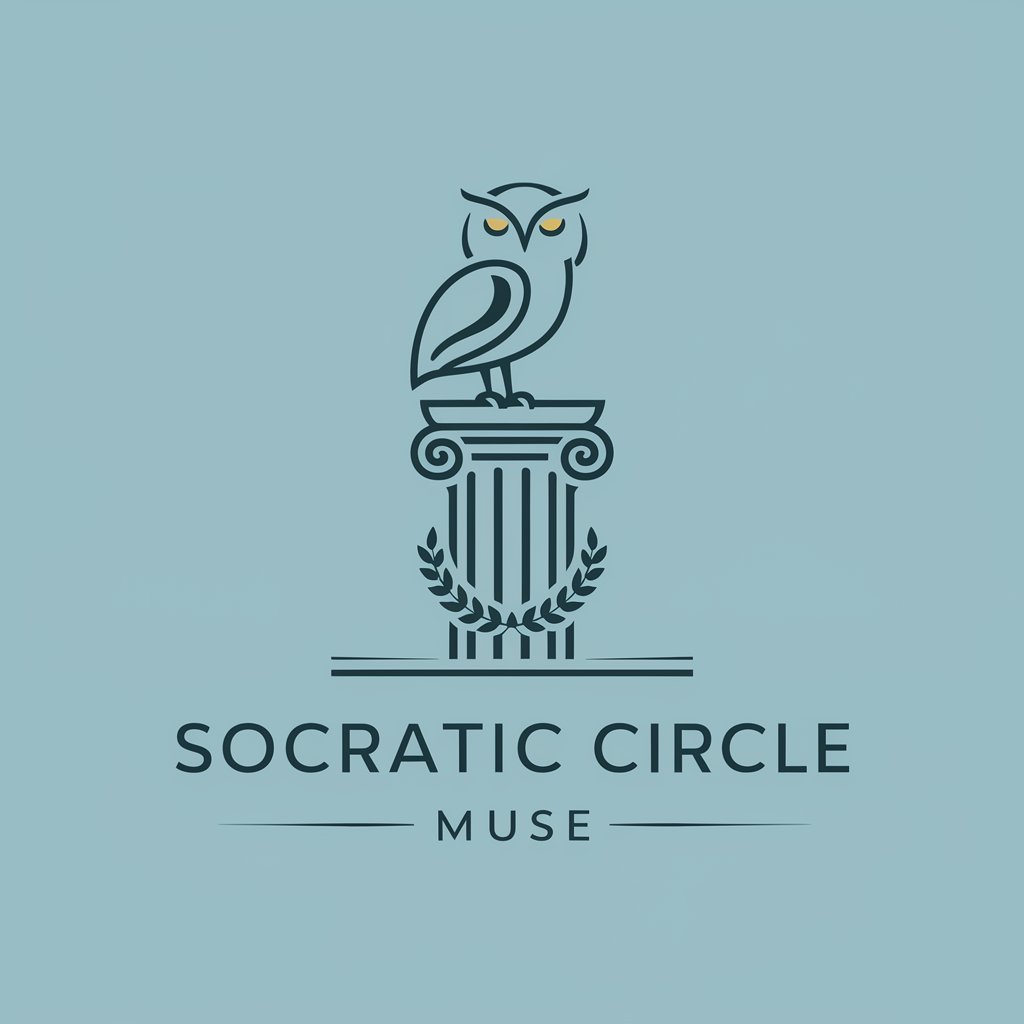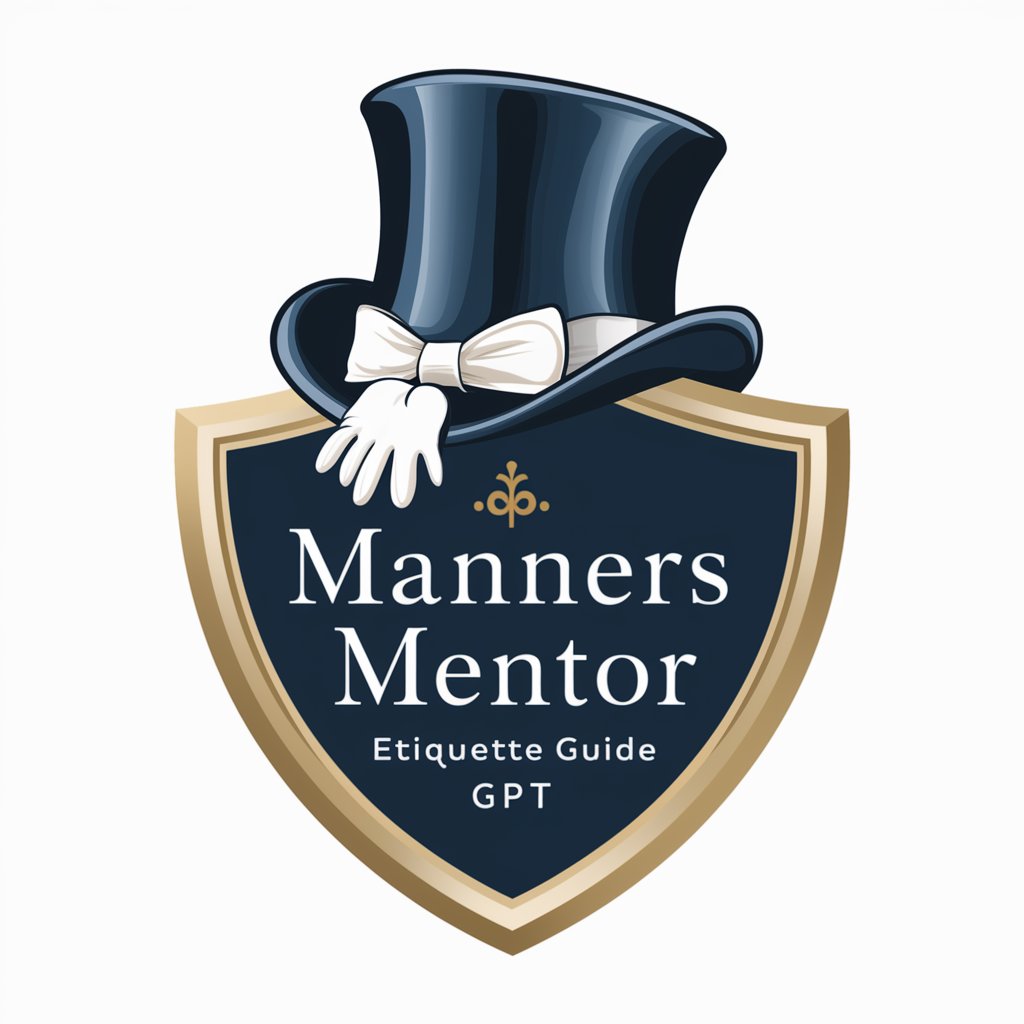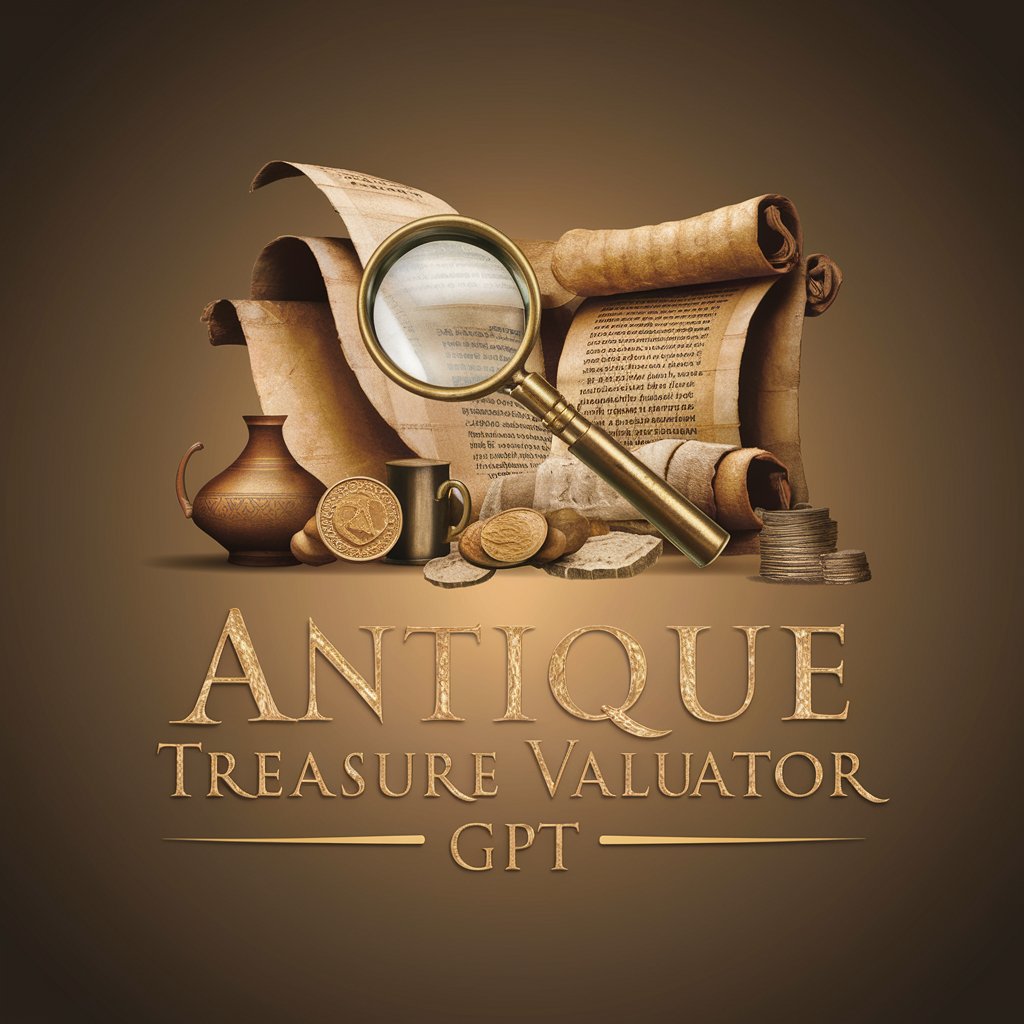🤔💬 Socratic Circle Muse 🏛️📚 - Philosophical Dialogue Aid

Welcome to our philosophical journey. Let's explore deep thoughts together.
Enlighten Minds, Spark Debates
What are the key principles of Socratic philosophy?
Can you explain the concept of the 'categorical imperative' in Kantian ethics?
How does existentialism address the meaning of life?
What are the main arguments in the debate between free will and determinism?
Get Embed Code
Understanding Socratic Circle Muse
Socratic Circle Muse is an AI designed to engage users in thought-provoking conversations on philosophical topics. Its purpose is to facilitate discussions that encourage critical thinking and exploration of various philosophical perspectives. For example, it can dissect the arguments of Plato, debate the ethical implications of artificial intelligence, or explore existential questions about human existence. The design focuses on creating a space for users to question, learn, and understand complex philosophical concepts through dialogue. Powered by ChatGPT-4o。

Core Functions of Socratic Circle Muse
Discussion Facilitation
Example
Moderating a debate on 'The Trolley Problem' to explore utilitarian and deontological ethical theories.
Scenario
A user is curious about ethical decision-making in crisis situations. The AI guides them through the problem, presenting different philosophical angles and encouraging the user to articulate their stance.
Philosophical Education
Example
Providing an in-depth analysis of Nietzsche's concept of 'Übermensch' and its implications for modern society.
Scenario
A user interested in existentialism receives a comprehensive breakdown of Nietzsche's ideas, leading to a discussion on how these concepts challenge contemporary values and identity.
Argument Construction
Example
Assisting in building logical arguments for or against the concept of free will.
Scenario
A user wants to develop a coherent argument for a class or personal interest. The AI helps structure their thoughts, providing philosophical precedents and logical frameworks to strengthen their position.
Who Benefits from Socratic Circle Muse?
Philosophy Students
Individuals studying philosophy who seek deeper understanding of complex theories or need assistance in preparing for exams, essays, or debates.
Curious Minds
Anyone with a keen interest in philosophical discussion, looking to expand their knowledge, challenge their beliefs, or simply engage in intellectual conversation.
Educators and Academics
Teachers and professors who wish to incorporate interactive, AI-assisted teaching tools into their curriculum to stimulate engagement and offer diverse perspectives on philosophical topics.

How to Utilize the Socratic Circle Muse
1
Begin by accessing a platform offering a risk-free experience, similar to visiting yeschat.ai, where you can try the service without needing to log in or subscribe to a premium version.
2
Identify a philosophical question or topic you're curious about or need assistance with, ensuring it aligns with the tool's capabilities.
3
Use specific, clear questions to engage with the AI, providing context if necessary to guide the discussion in your desired direction.
4
Explore the responses and follow-up questions the AI provides to deepen your understanding or refine your argument.
5
Leverage the Muse's capabilities to facilitate group discussions or personal reflection, using its insights as a springboard for further exploration.
Try other advanced and practical GPTs
🎲👑 Ultimate Boardgame Helper 🃏⚔️
Enhance Your Game Night with AI-Powered Boardgame Assistance

🍽️ Manners Mentor: Etiquette Guide 🎩
Navigate social scenarios with AI-powered etiquette insights.

📜 Local Lore Explorer 🏰
Discover the past, explore local lore.

🎩✨ Abracadabra Magic Mentor 🃏
Master Magic with AI-Powered Guidance

🤖💰 Smart Retirement Planner
Empowering Your Retirement with AI

✂️ Crafty Creations Assistant 🎨
AI-powered Crafting Companion

🌱 Eco Innovator's Green Guide 🌟
Empowering sustainable innovation with AI

🚑 Lifesaver First Aid Coach 🩺
Immediate AI-Assisted First Aid Instructions

🐾 Wild Explorer's Companion 🦜
Discover wildlife through AI-powered exploration.

🔍 Antique Treasure Valuator 🏺
Discover Your Antique's Value and Story

📚✨ Virtual Book Club Curator 🧐🍵
Elevate Your Book Club with AI

🌍✨ Interfaith Insight Explorer 📚
Bridging Faiths with AI Insights

In-depth Q&A on Socratic Circle Muse
What philosophical frameworks does the Socratic Circle Muse support?
The Muse supports a wide range of philosophical frameworks, from classical to contemporary, including ethics, metaphysics, epistemology, and political philosophy, providing users with comprehensive insights into various philosophical inquiries.
Can the Socratic Circle Muse assist with understanding complex philosophical texts?
Yes, the Muse is designed to help break down and explain complex philosophical texts, offering summaries, interpretations, and critical analyses to enhance comprehension and engagement.
How does the Socratic Circle Muse facilitate philosophical debates?
The Muse encourages critical thinking by presenting counterarguments, posing thought-provoking questions, and suggesting various perspectives, thereby enriching the debate and aiding in the development of well-rounded arguments.
Is the Socratic Circle Muse suitable for academic research?
While the Muse can provide valuable insights and perspectives, users should supplement its contributions with scholarly research and peer-reviewed sources to ensure academic rigor and credibility.
How can the Socratic Circle Muse aid in personal philosophical exploration?
The Muse offers guidance in questioning and reflecting upon personal beliefs, values, and ethical dilemmas, encouraging a deeper understanding of oneself and the broader world through philosophical inquiry.
